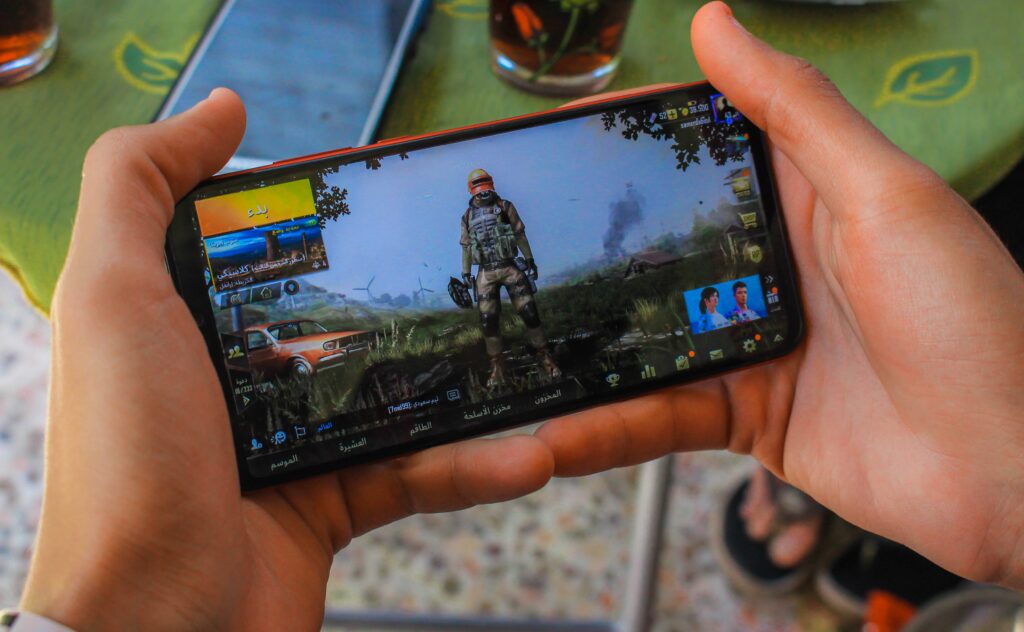In the dynamic realm of digital entertainment, mobile games have emerged as a powerhouse, captivating audiences worldwide and generating billions in revenue. Behind the scenes, a diverse array of mobile game development companies plays a crucial role in shaping this booming industry.
These companies are at the forefront of innovation, constantly pushing boundaries to deliver engaging, immersive, and cutting-edge gaming experiences.
Today, we want to take our time to talk about these mobile game development companies, how they have shaped the gaming industry, and how they will continue to shape it in the future.

Mobile game development companies and the rise of mobile gaming
The advent of smartphones marked a transformative milestone in the realm of gaming, introducing a seismic shift that redefined the very nature of interactive entertainment.
These pocket-sized marvels, equipped with increasingly potent hardware and sophisticated touchscreens, emerged as powerful platforms capable of delivering immersive gaming experiences to users worldwide.
Mobile game development companies quickly arose to meet the increasing demand for creating games for these platforms. They have been playing a pivotal role in shaping an industry that caters to a vast and diverse audience ever since.
The evolution of mobile games reflects not only the technological advancements of the devices themselves but also the creative ingenuity of developers striving to push the boundaries of what is achievable in the palm of one’s hand.
The spectrum of mobile gaming experiences is as diverse as the user base it serves.
At one end, there are casual games designed for quick, accessible enjoyment, making them ideal for those seeking a brief reprieve during a lunch break or commute. These games often feature simple mechanics and intuitive controls, ensuring that virtually anyone, regardless of gaming experience, can engage and find entertainment.
On the other end of the spectrum are complex, narrative-driven adventures that rival their console and PC counterparts in terms of depth and storytelling.
Mobile game developers have adeptly harnessed the capabilities of modern smartphones to create visually stunning worlds, intricate storylines, and captivating characters. These narrative gems appeal to a more dedicated gaming audience, providing an engrossing experience that goes beyond mere time-filling distractions.
Social connectivity has also become a hallmark of mobile gaming. Multiplayer modes, live events, and real-time collaborations allow players to connect with friends and fellow gamers, fostering a sense of community within these virtual realms.
The social dimension adds an extra layer of engagement, turning solitary gaming sessions into shared experiences that transcend geographical boundaries.

Technological advancements
The evolution of technology has ushered in a transformative era for the mobile gaming industry, redefining the landscape and pushing the boundaries of what is achievable.
Mobile game development companies are at the forefront of this revolution, demonstrating unprecedented agility in embracing cutting-edge technologies to elevate user experiences.
One of the most prominent innovations making waves in the mobile gaming arena is augmented reality (AR). It seamlessly integrates virtual elements into the real-world environment, providing players with a heightened sense of immersion.
This technology has paved the way for games that encourage users to explore their surroundings, interact with virtual objects, and even engage in collaborative experiences with other players. Popular titles like Pokémon GO exemplify the potential of AR in transforming mobile gaming into a captivating blend of the virtual and real worlds.

Virtual reality (VR) has also left an indelible mark on mobile gaming, transporting players to entirely new realms. VR-enabled games immerse users in immersive environments, leveraging advanced hardware to create a sense of presence and interactivity.
While VR on mobile devices may not yet match the capabilities of dedicated VR platforms, advancements in hardware and software continue to bridge the gap, promising a future where mobile VR delivers unparalleled gaming experiences.
Challenges and opportunities for mobile game development companies
The ongoing surge in the popularity of mobile gaming is undeniable. However, this prosperity does not come without its share of hurdles.
One prominent challenge confronting companies is the saturation of the market, where a plethora of games compete for the attention of a finite user base. Navigating through this dense competitive environment demands strategic thinking and creative solutions.
Discoverability poses another significant challenge. With an overwhelming number of games available across various app stores, getting noticed amidst the noise becomes a formidable task.
Developers must invest in robust marketing strategies, leveraging social media, influencer partnerships, and innovative promotional campaigns to ensure their games stand out.
Moreover, the delicate balance between monetization and user satisfaction is crucial. Aggressive monetization models, such as intrusive ads or pay-to-win mechanics, can lead to player dissatisfaction and tarnish a game’s reputation.
However, a lack of effective monetization strategies can impede a company’s financial sustainability. Striking the right equilibrium involves understanding player preferences, implementing ethical monetization practices, and exploring diverse revenue streams, such as in-app purchases, subscriptions, and cosmetic upgrades.
Even with these challenges, there is still a realm of opportunities for innovation and differentiation.
Successful companies seize the chance to innovate in gameplay mechanics, graphic design, and interactive features, creating unique and memorable gaming experiences. AR, VR, and cross-platform compatibility are emerging trends that present exciting possibilities for forward-thinking developers.
User engagement is also increasingly becoming a focal point for mobile game development companies. Building communities around games through social platforms, forums, and in-game events fosters a sense of belonging among players. This engagement not only retains existing users but also attracts new ones through positive word-of-mouth and online reviews.

Being ahead of the market
Most of all, consistent delivery of high-quality experiences is a cornerstone of long-term success. That’s the secret for mobile game development companies to keep competitive in the market.
It is necessary to prioritize user feedback, conduct thorough testing, and address bugs promptly to contribute to building a positive reputation. Regular updates, new content releases, and community involvement are also extremely important to keep the player base engaged and excited.
Companies that invest in effective marketing, strike a balance between monetization and user satisfaction, and embrace emerging technologies are well-equipped to navigate the complexities and secure enduring success in this ever-evolving industry.
We here at Main Leaf have seen the evolution of mobile game development companies up close during our 11 years of activity in the game development industry, and we know there is still much to happen in the future.
If you liked this article, check out our blog, where we discuss many other topics regarding the world of game development.

